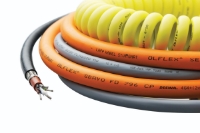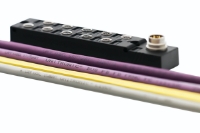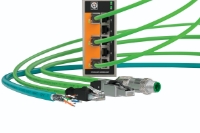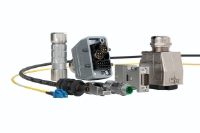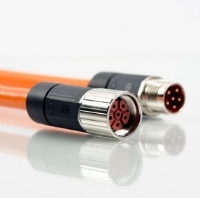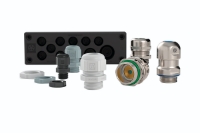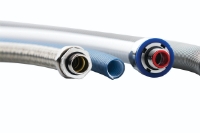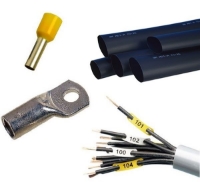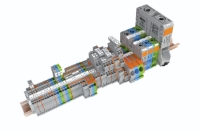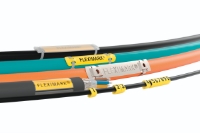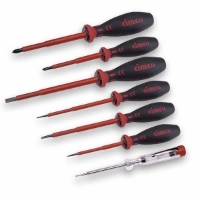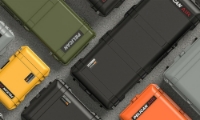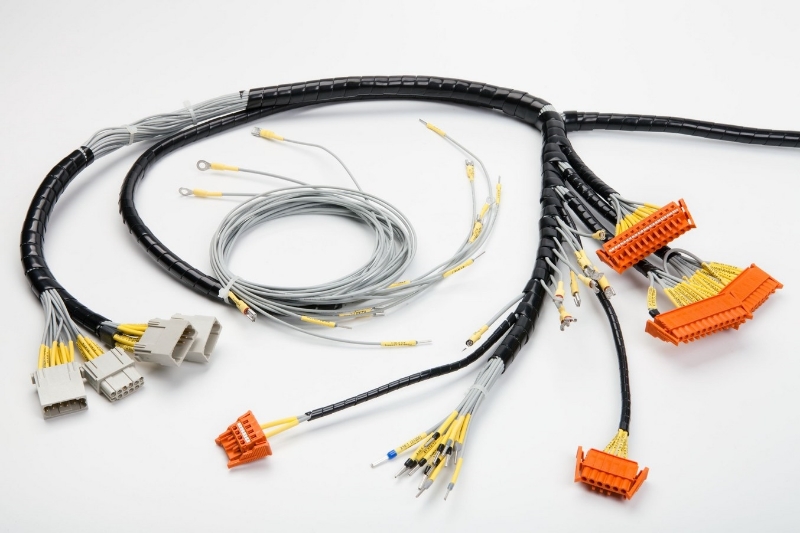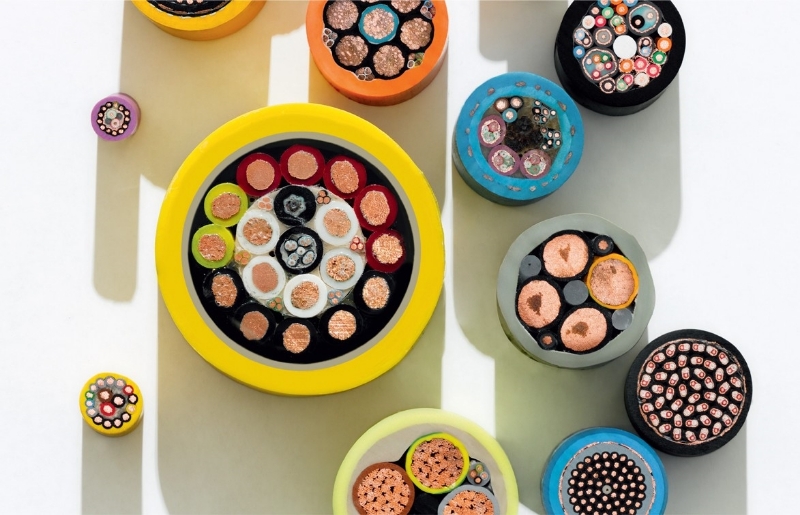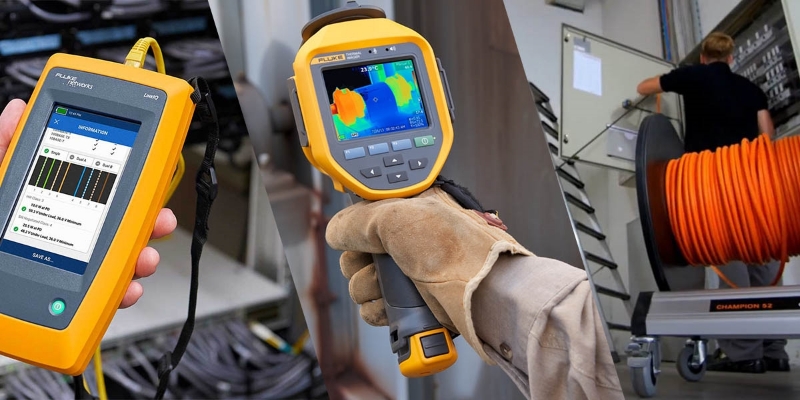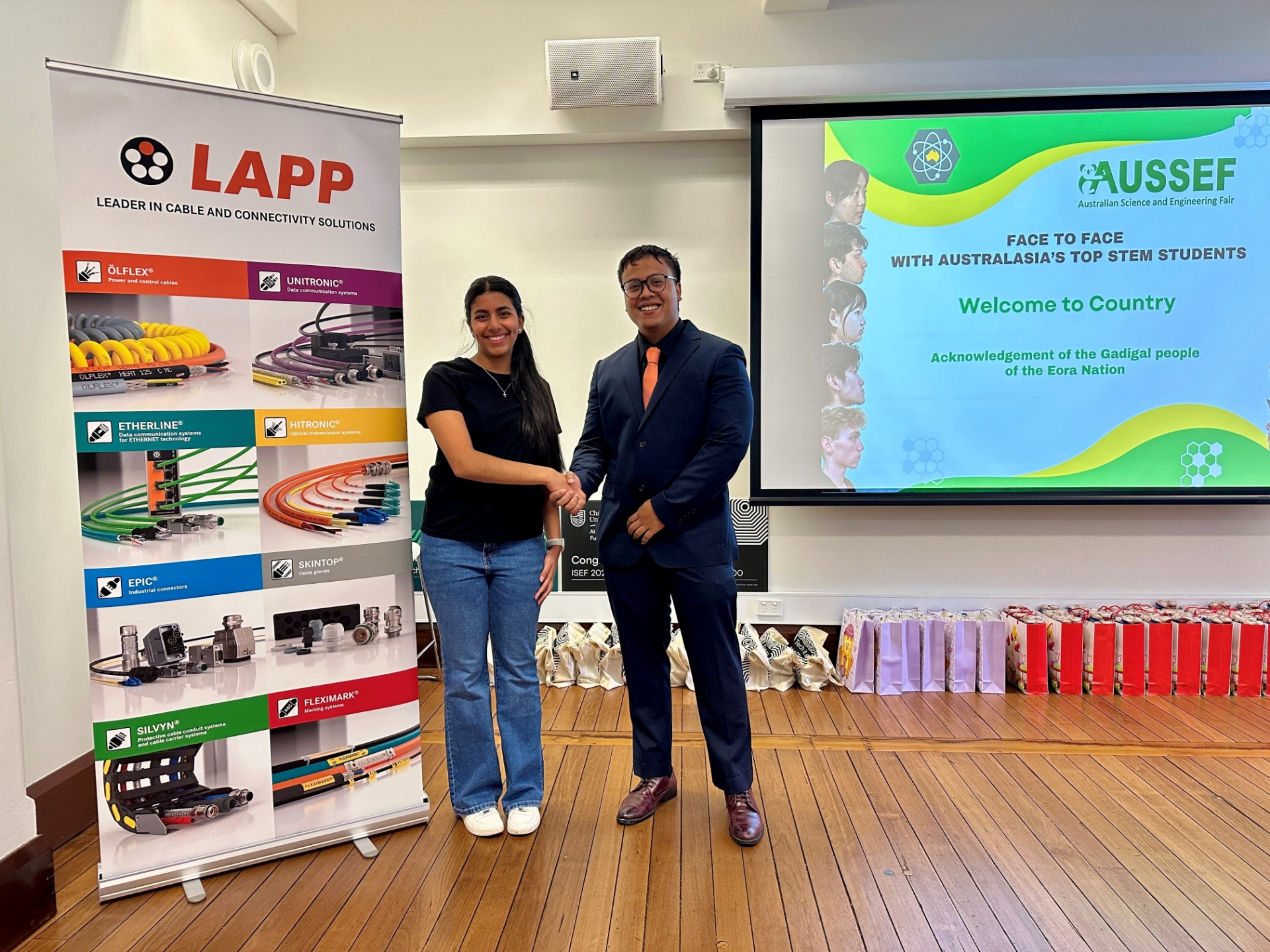LAPP Australia Quality Systems Coordinator, Justin Lim, right, congratulates PLC Sydney student Lily Rofail, left, on being chosen to represent Australia as part of the Australian Science and Engineering Fair (AUSSEF) team. Lily’s project used the drag-reducing properties of shark skin to create a solution to reduce drag on heavy vehicles, thereby cutting carbon emissions and fuel expenditure.
Bite-sized brilliance:
LAPP-sponsored student mimics shark skin to cut drag on heavy vehicles.
Nature-inspired, future-focused
Lily’s project takes inspiration from nature to derive a solution that could be implemented on truck and heavy vehicle bodies to reduce drag.
“My project investigated the use of a new aerodynamic modification, namely shark-denticle-inspired vortex generators,” explains Lily.
“The shark-denticle-inspired vortex generators used in my investigation are metal attachments inspired by the shape of nurse shark denticles (a shark adaptation that reduces drag in water). They were placed on the rear of the upper and side surfaces of a model truck and tested in a wind tunnel alone and in combination with a number of pre-existing modifications,” she says.
“The results proved that the shark denticle-inspired vortex generators result in a significant and independent reduction in drag. The shark denticle inspired vortex generators serve as a solution that is easily transferable, cost- effective and can be applied to both existing and new heavy vehicles.”
International competition
Lily will join 10 other students selected by AUSSEF to compete at the international Science and Engineering Fair (ISEF) from May 10-16, 2025, in Columbus, Ohio.
“Last year’s representatives performed brilliantly, and knowing the quality of entries from Lily and the other Australian representatives, LAPP Australia is backing the team to do well in 2025,” says Pullinger.

